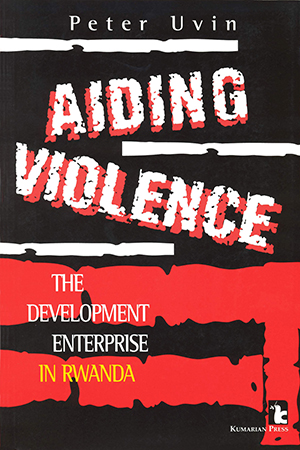
- 1998/273 pages
- A Kumarian Press Book
Aiding Violence:
The Development Enterprise in Rwanda
Hardcover: $72.00
ISBN: 978-1-56549-084-0
Paperback: $30.00
ISBN: 978-1-56549-083-3
Ebook: $30.00
ISBN: 978-1-62637-370-9
Winner of the African Studies Association’s Herskovits Award!
Aiding Violence expresses outrage at the contradiction of genocide in a country considered at the time by Western aid agencies to be a model of development. Peter Uvin reveals how aid enterprises reacted—or failed to react—to the 1990s dynamics of militarization and polarization in Rwanda that resulted in mass atrocities. Outlining the profound structural basis on which the genocidal edifice was built, he exposes the practices of inequality, exclusion, and humiliation that were pervasive throughout the country.
Aiding Violence expresses outrage at the contradiction of genocide in a country considered at the time by Western aid agencies to be a model of development. Peter Uvin reveals how aid enterprises reacted—or failed to react—to the 1990s dynamics of militarization and polarization in Rwanda that resulted in mass atrocities. Outlining the profound structural basis on which the genocidal edifice was built, he exposes the practices of inequality, exclusion, and humiliation that were pervasive throughout the country.







